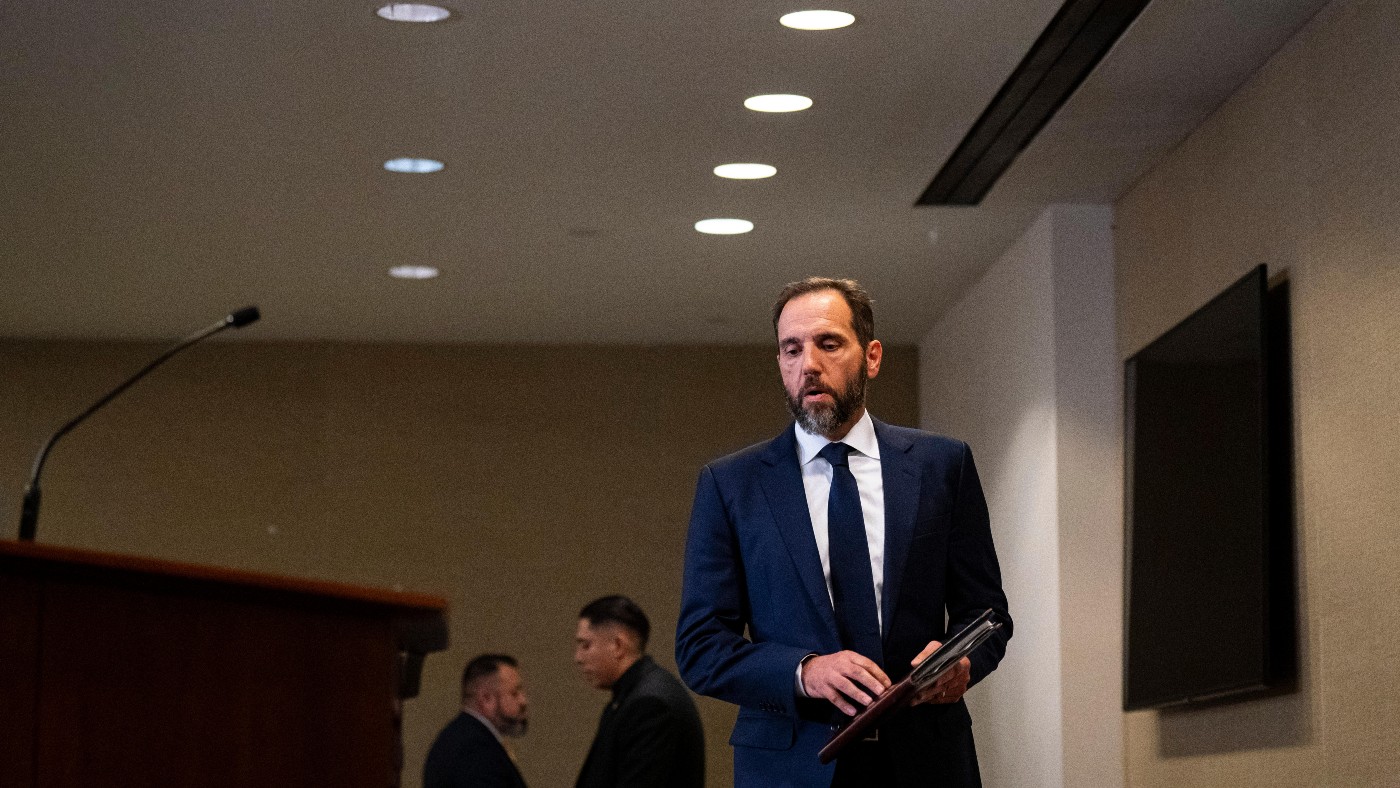Has privatised probation failed?
As the government prepares to scrap its contracts in this sector, questions over the viability of the system have arisen

A free daily email with the biggest news stories of the day – and the best features from TheWeek.com
You are now subscribed
Your newsletter sign-up was successful
The government plans to abandon its private probation contracts two years early at a cost of £170 million, a decision that acknowledges failures in reforms carried out by former justice secretary Chris Grayling.
Agreements with eight private firms that run 21 Community Rehabilitation Companies (CRCs) to manage low-risk offenders in England and Wales will now end in 2020 rather than 2022, after accusations the arrangements had put public safety at risk, says The Independent.
Last month a report by the justice committee said it was “unconvinced the changes would deliver an effective or viable service for managing offenders in the community”. It described the current predicament as a “mess”.
The Week
Escape your echo chamber. Get the facts behind the news, plus analysis from multiple perspectives.

Sign up for The Week's Free Newsletters
From our morning news briefing to a weekly Good News Newsletter, get the best of The Week delivered directly to your inbox.
From our morning news briefing to a weekly Good News Newsletter, get the best of The Week delivered directly to your inbox.
What were the reforms?
The CRC contracts, which began in 2015, were part of a major £3.7bn part-privatisation programme for England and Wales introduced by Grayling in 2014.
Under the reorganisation, the state-run National Probation Service (NPS) would deal with the most high-risk offenders, while the supervision of low and medium-risk offenders was “farmed out” to CRCs in contracts worth almost £4bn over seven years, Sky News reports.
The Guardian says that Grayling’s proposal also included a “payment by results” system based on reducing rates of reoffending.
A free daily email with the biggest news stories of the day – and the best features from TheWeek.com
What went wrong?
In February, an investigation by Sky News found that CRC whistleblowers believed the reforms put public safety at severe risk as the contracted firms lacked the resources to “properly supervise” offenders in the community.
“Re-offending rates for some of the most serious crimes, including murder, rape and other violent offences have risen by 26% since the government reorganised the probation system in 2014,” the site adds.
The Times writes that under the reforms some offenders on probation were being monitored with a phone call “every six weeks”, rather than a face-to-face visit.
“How then can you read body language to tell if they’re reoffending, whether they’re back on drugs or involved in domestic abuse?”, one CRC staff member said.
What happens next?
Although current Justice Minister David Gauke has vowed to reform the programme, the government still insists that the private sector has “a role to play” in probation services, The Guardian reports. It will be putting contracts out to tender for the overhauled framework proposed for 2020 onwards.
Gauke said there were “lesson to be learned” but added: “Rather than ripping it up and starting again we should listen to the concerns that have been raised and respond in a pragmatic way.”
Ian Lawrence, the general secretary of probation union Napo, said: “It is unbelievable that the government’s initial response to the Justice Committee’s thorough inquiry into this catastrophe is to give private companies a bigger slice of the pie.
“It is clear they are wedded to a failed and unworkable ideology, and cannot accept the undeniable fact that justice and public safety cannot be subject to the rule of supply and demand.”
-
 How the FCC’s ‘equal time’ rule works
How the FCC’s ‘equal time’ rule worksIn the Spotlight The law is at the heart of the Colbert-CBS conflict
-
 What is the endgame in the DHS shutdown?
What is the endgame in the DHS shutdown?Today’s Big Question Democrats want to rein in ICE’s immigration crackdown
-
 ‘Poor time management isn’t just an inconvenience’
‘Poor time management isn’t just an inconvenience’Instant Opinion Opinion, comment and editorials of the day
-
 Judge ends Eric Adams case, Trump leverage
Judge ends Eric Adams case, Trump leverageSpeed Read Federal corruption charges against New York City Mayor Eric Adams were dismissed, as requested by Trump's Justice Department
-
 DOJ demands changes at 'abhorrent' Atlanta jail
DOJ demands changes at 'abhorrent' Atlanta jailSpeed Read Georgia's Fulton County Jail subjects inmates to 'unconstitutional' conditions, the 16-month investigation found
-
 DOJ charges 2 in white nationalist 'Terrorgram' plot
DOJ charges 2 in white nationalist 'Terrorgram' plotFeds say Dallas Humber and Matthew Allison were plotting assassinations through a terrorist network on Telegram
-
 Jack Smith: the special prosecutor taking on Donald Trump
Jack Smith: the special prosecutor taking on Donald TrumpIn the Spotlight The Department of Justice has now brought two indictments against Trump following Smith’s investigations
-
 What we know about the Copenhagen mall shooting
What we know about the Copenhagen mall shootingSpeed Read Lone gunman had mental health issues and not thought to have terror motive, police say
-
 Texas school shooting: parents turn anger on police
Texas school shooting: parents turn anger on policeSpeed Read Officers had to be urged to enter building where gunman killed 21 people
-
 DJ Tim Westwood denies multiple sexual misconduct allegations
DJ Tim Westwood denies multiple sexual misconduct allegationsSpeed Read At least seven women accuse the radio and TV presenter of predatory behaviour dating back three decades
-
 What happened to Katie Kenyon?
What happened to Katie Kenyon?Speed Read Man charged as police search for missing 33-year-old last seen getting into van